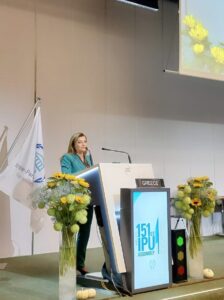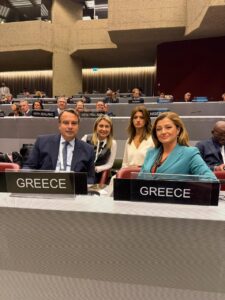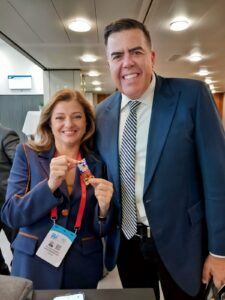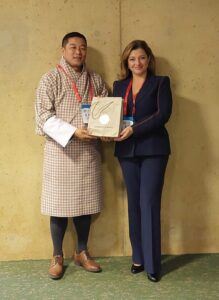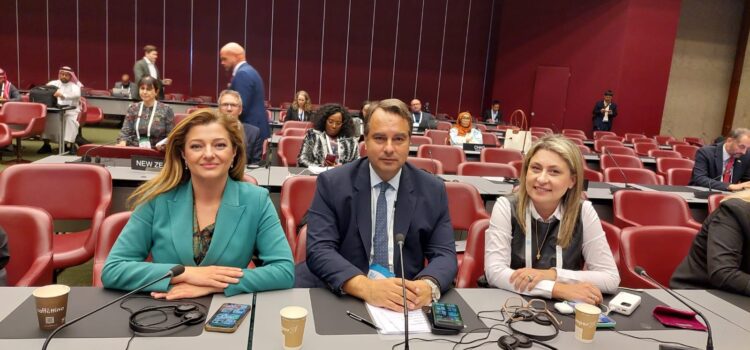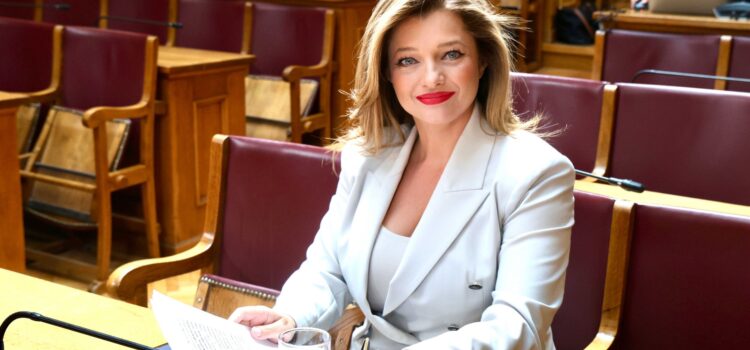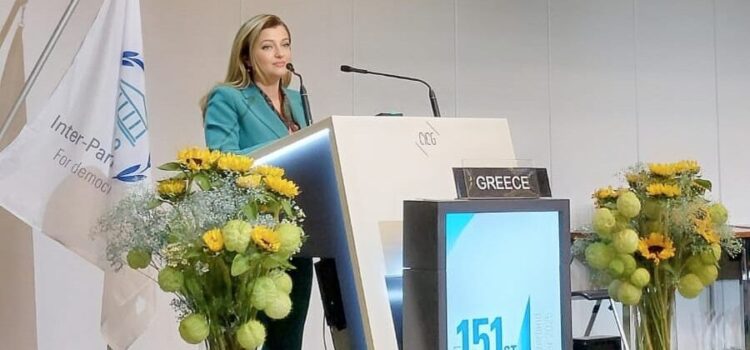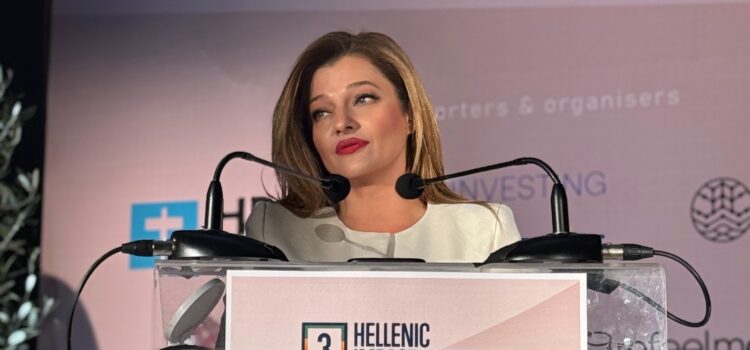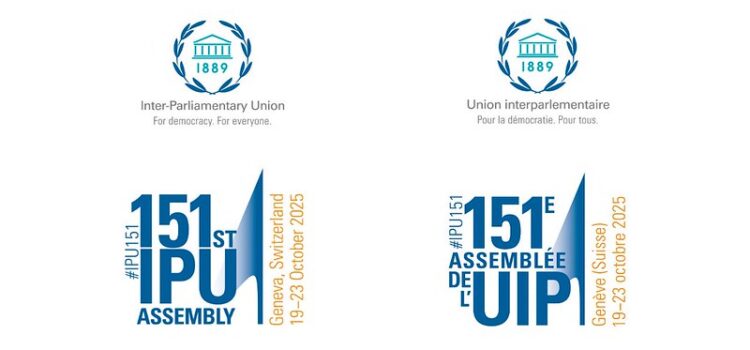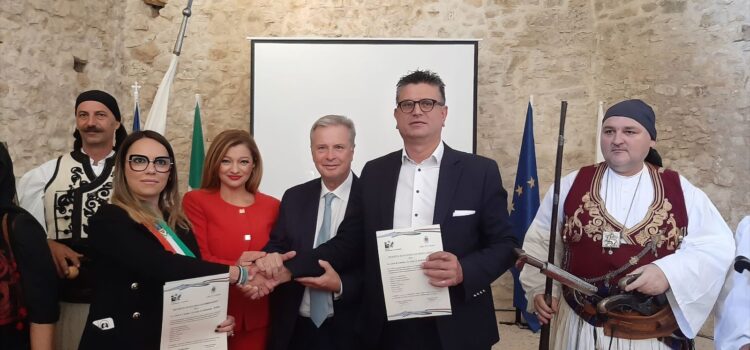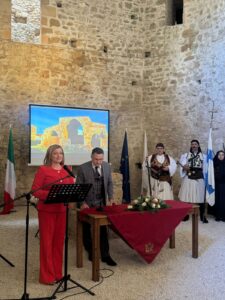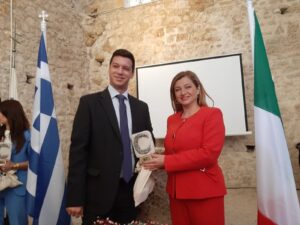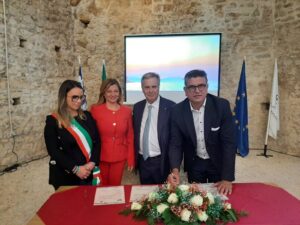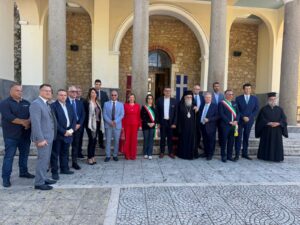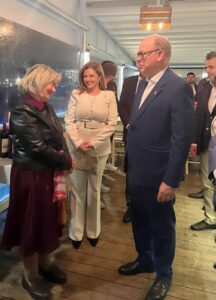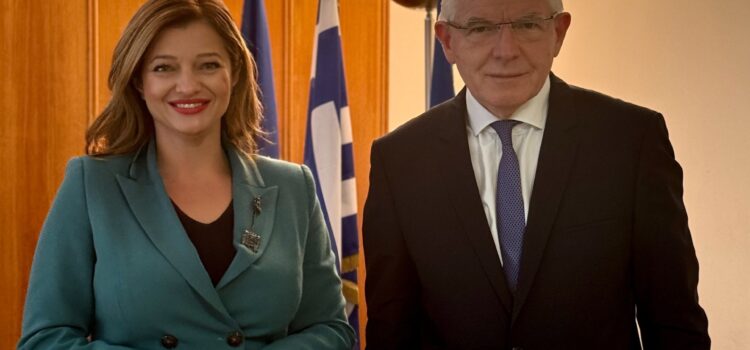Σημαντική ομιλία απηύθυνε η Δρ. Διονυσία – Θεοδώρα Αυγερινοπούλου, Βουλευτής Ν. Ηλείας, Ν.Δ., Μέλος της Εκτελεστικής Επιτροπής της Διακοινοβουλευτικής Ένωσης (IPU) και τέως Αντιπρόεδρός της, ως εκπρόσωπος του Ελληνικού Κοινοβουλίου στην Γενική Συζήτηση (General Debate) της Ολομέλειας της 151ης Γενικής Συνέλευσης της Διακοινοβουλευτικής Ένωσης που πραγματοποιείται στη Γενεύη με κεντρικό θέμα: «Προάσπιση των ανθρωπιστικών αρχών και στήριξη της ανθρωπιστικής δράσης σε περιόδους κρίσης» (Upholding humanitarian norms and supporting humanitarian action in times of crisis). Οι διεργασίες της Ολομέλειας της Διακοινοβουλευτικής Διάσκεψης στοχεύουν στην προώθηση του διαλόγου, της ειρήνης, της δημοκρατίας και της αναβάθμισης της πολυμερούς και της κοινοβουλευτικής συνεργασίας σε παγκόσμιο επίπεδο, σε μια εποχή κατά την οποία καταγράφονται πάνω από 120 συνεχιζόμενες συγκρούσεις και περισσότεροι από 310 εκατομμύρια άνθρωποι χρειάζονται ανθρωπιστική βοήθεια, όπως καταδεικνύουν τα στοιχεία της Διεθνούς Επιτροπής του Ερυθρού Σταυρού (ICRC) και του Γραφείου Συντονισμού Ανθρωπιστικών Υποθέσεων του ΟΗΕ (OCHA).
Στην τοποθέτησή της, η Δρ. Αυγερινοπούλου αναφέρθηκε στις πρωτοφανείς ανθρωπιστικές προκλήσεις, επισημαίνοντας ότι «ο κόσμος συχνά στρέφει την προσοχή του μόνο σε λίγες συγκρούσεις που κυριαρχούν στα πρωτοσέλιδα, ενώ η σιωπηλή οδύνη εκατομμυρίων ανθρώπων παραμένει αόρατη». Σημείωσε ότι οι Συμβάσεις της Γενεύης, τα Πρόσθετα Πρωτόκολλά τους και η Σύμβαση για τα Δικαιώματα του Παιδιού αποτελούν δεσμευτικές διεθνείς συνθήκες, καθώς και ότι η εφαρμογή τους, όπως και των σχετικών ψηφισμάτων του Συμβουλίου Ασφαλείας και της Γενικής Συνέλευσης του ΟΗΕ, είναι υποχρεωτική. Η Ελλάδα, όπως ανέφερε, «ως μη μόνιμο μέλος του Συμβουλίου Ασφαλείας του ΟΗΕ, υποστηρίζει σταθερά την εφαρμογή του Διεθνούς Δημοσίου και Ανθρωπιστικού Δικαίου και είναι έτοιμη να συμβάλει ενεργά στην ανοικοδόμηση της Λωρίδας της Γάζας». Στο πλαίσιο αυτό, η Δρ. Αυγερινοπούλου κάλεσε τα κοινοβούλια να δράσουν συλλογικά μέσω διπλωματίας, αποστολών διερεύνησης γεγονότων και κοινοβουλευτικού ελέγχου, με στόχο την προώθηση της ειρήνης, του διαλόγου και της λογοδοσίας.
Ιδιαίτερη αναφορά έκανε, ακόμη, στη σύνδεση μεταξύ της ανθρωπιστικής και της περιβαλλοντικής ατζέντας, υπογραμμίζοντας την ανάγκη δημιουργίας καινοτόμων χρηματοδοτικών εργαλείων, όπως τα κλιματικά ομόλογα, ταμεία ανθεκτικότητας και συμπράξεις δημόσιου και ιδιωτικού τομέα, για την κάλυψη των σημαντικών χρηματοδοτικών ελλειμμάτων. Επισήμανε, ειδικότερα, την ανάγκη κινητοποίησης τουλάχιστον 15 δις. Δολαρίων ετησίως για δράσεις υπέρω των θαλασσών μας, ώστε να αποκατασταθούν τα θαλάσσια οικοσυστήματα και να προστατευθούν οι παράκτιες κοινότητες. «Πρέπει να σώσουμε τους λαούς μας από τις ανθρωπιστικές, περιβαλλοντικές και κλιματικές κρίσεις που απειλούν εξίσου την ανθρώπινη ασφάλεια», ανέφερε χαρακτηριστικά.
Κλείνοντας, υπογράμμισε ότι η Διακοινοβουλευτική Ένωση αποτελεί «το πιο περιεκτικό πολυμερές φόρουμ στον κόσμο, που ενώνει περισσότερους από 46.000 βουλευτές από 182 εθνικά κοινοβούλια, εκπροσωπώντας πάνω από 8 δισεκατομμύρια ανθρώπους», καλώντας τα μέλη της να «ενώσουν τις φωνές τους για την ειρήνη και τη δημοκρατία».
Έκτακτο ψήφισμα ενάντια στο διασυνοριακό οργανωμένο έγκλημα και τις υβριδικές απειλές
Την ίδια ημέρα, η Ολομέλεια της IPU ενέκρινε με πλειοψηφία δύο τρίτων (2/3) το έκτακτο ψήφισμα με θέμα: «Parliamentary action against transnational organized crime, cybercrime and hybrid threats to democracy and human security», το οποίο υποστηρίχθηκε από τη Γεωπολιτική Ομάδα των 12+, στην οποία ανήκει η Ελλάδα, καθώς και από τη Γεωπολιτική Ομάδα της Λατινικής Αμερικής και Καραϊβικής (GRULAC).
Το ψήφισμα στοχεύει στην ενίσχυση της παγκόσμιας κοινοβουλευτικής δράσης ενάντια στο οργανωμένο έγκλημα, το κυβερνοέγκλημα και τις υβριδικές απειλές που υπονομεύουν τη δημοκρατία, την ασφάλεια και το κράτος δικαίου, καθώς και στην προώθηση συνεργασίας μεταξύ εθνικών κοινοβουλίων, του ΟΗΕ, της INTERPOL και άλλων διεθνών οργανισμών.
Dr. Dionysia-Theodora Avgerinopoulou at the General Debate of the 151st Assembly of the Inter-Parliamentary Union (IPU):
“Let us unite our voices to restore peace and work to bridge the humanitarian and environmental agendas for a sustainable future.”
Dr. Dionysia–Theodora Avgerinopoulou, Member of the Hellenic Parliament, Chair of the Environment Committee, Member and former Vice-President of the Executive Committee of the Inter-Parliamentary Union (IPU), delivered an important address representing the Hellenic Parliament during the General Debate of the 151st Assembly of the Inter-Parliamentary Union, held in Geneva under the theme: “Upholding humanitarian norms and supporting humanitarian action in times of crisis.” The General Debate focuses on promoting dialogue, peace, democracy, and the strengthening of multilateral and parliamentary collaboration at the global level — at a time when over 120 armed conflicts are ongoing and more than 310 million people are in need of humanitarian assistance, according to data from the International Committee of the Red Cross (ICRC) and the UN Office for the Coordination of Humanitarian Affairs (OCHA).
In her statement, Dr. Avgerinopoulou referred to the unprecedented humanitarian challenges faced by the international community and noted that “the world’s attention is often limited to only a few conflicts that dominate the headlines, while the silent suffering of millions remains unseen.” She underlined that the Geneva Conventions, their Additional Protocols, and the Convention on the Rights of the Child are binding international treaties, and that their implementation—along with relevant resolutions of the UN Security Council and the UN General Assembly—is mandatory. Greece, she emphasized, “as a non-permanent member of the UN Security Council, firmly supports the implementation of International Public and Humanitarian Law and stands ready to actively contribute to the reconstruction of the Gaza Strip.” In this context, Dr. Avgerinopoulou called on parliaments to act collectively through preventive diplomacy, fact-finding missions, and parliamentary oversight, with the aim of promoting peace, dialogue, and accountability.
She also made special reference to the interlinkages between the humanitarian and environmental agendas, highlighting the need to create innovative financial instruments—such as climate bonds, resilience funds, and public–private partnerships—to address existing financing gaps. In particular, she emphasized the need to mobilize at least USD 15 billion annually for ocean action, in order to restore marine ecosystems and protect coastal communities. “We must save our peoples from the humanitarian, environmental, and climate crises that equally threaten human security,” she stated.
In conclusion, Dr. Avgerinopoulou underscored that the Inter-Parliamentary Union constitutes “the most inclusive multilateral forum in the world, uniting more than 46,000 parliamentarians from 182 national parliaments, representing over 8 billion people,” and called upon its members to “join their voices for peace and democracy”.
Emergency resolution against transnational organized crime and hybrid threats
On the same day, the IPU Plenary adopted by a two-thirds (2/3) majority an emergency resolution entitled: “Parliamentary action against transnational organized crime, cybercrime and hybrid threats to democracy and human security.” The resolution was supported by the Twelve Plus Geopolitical Group, to which Greece belongs, and by the Group of Latin America and the Caribbean (GRULAC).
The resolution aims to strengthen the global parliamentary response against organized crime, cybercrime, and hybrid threats that undermine democracy, security, and the rule of law, and to promote enhanced cooperation among national parliaments, the United Nations, INTERPOL, and other international organizations.
